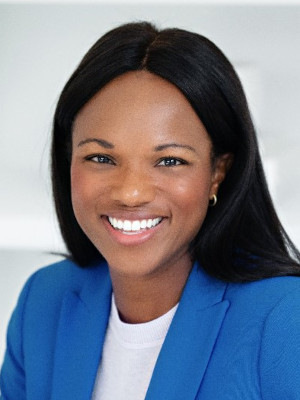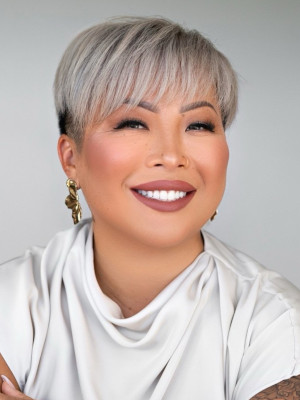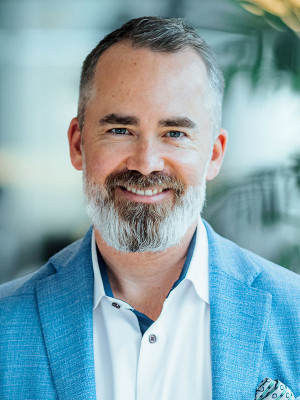This article is part of our October special report on managing family businesses and family offices across the generations. To see all the articles, click here.

You might think that financial smarts are baked into the DNA of wealthy business founders and their families. In truth, entrepreneurial skills and savvy don’t often come naturally.
“I spend a lot of time actually teaching people how their parents’ businesses work,” says Samantha Sykes, senior investment advisor with Raymond James Ltd. in Toronto. “Financial literacy comes way too late for a lot of these adult rich kids.”
No one wants to watch their family wealth dribble away. Instead, they want what the Mulliez family has. They are the wealthiest family in France, and their holding company, Association Familiale Mulliez (AFM), is the umbrella for multiple family businesses that sell toys, pizza, wine, clothing and food products. The family motto is Le tous dans tout, or, roughly, “all family in all businesses.”
How can an enterprising family build a strong financial foundation and help foster a sense of entrepreneurship so their children don’t just inherit wealth but create it as well? Families are taking on financial literacy education to make it happen.
Start as early as you can

If children are showing natural entrepreneurial drive, such as demonstrating problem-solving skills, start nurturing those instincts, Sykes advises. “You want to capitalize on that creativity rather than deny it,” she says.
That includes teaching children to recognize opportunities and showing them how to solve problems regardless of the situation. “You want to inspire resilience. You want to help them start enterprises and work through enterprises early in life, and show them it’s okay to fail.”
Even if the children aren’t showing interest in the family business or in creating their own businesses, it’s never too early to demystify money, says Jenny Chen, a former financial planner and now CEO of Catalais Consulting, a management consulting firm in Ottawa.
“Wealth should never be about money but about discipline. And so that can start any time,” she says. “Because it’s not about growing money, it’s about growing their mindsets, learning how to prioritize and also understanding that money is not a scary thing.”
Instead, Chen adds, the conversation should approach money as a tool—it’s about building wisdom and knowledge around how finance works.
Connect them with mentors
One advantage of having a team of experts at your disposal is they can also act as mentors, says Terry Wright, advisor with LT Wealth Management Partners at Raymond James Ltd. in Vancouver.

“When you’re coming from a successful family, you don’t really need money,” he says. “The best job you can get is going to be working with someone or for someone who’s going to provide you with a little more insight into the reasoning for why you’re doing a job.”
Starting from the bottom is a cliché for a reason, says Sykes.
“A big part of being an entrepreneur is being a self-starter, learning through experience, gathering information and dealing with issues, like making their own flow charts,” says Sykes. This experience helps the next generation make informed decisions, and doing so in a group setting with trial and error builds curiosity, creativity and confidence.
Wright says this is the time to nurture your children’s entrepreneurial spirit so they can build something without tapping the bank of mom and dad. One way to teach them is to help them understand the process of asking for funds.
“They’d have to develop a business plan and lay out all of the pros and cons associated with every aspect of what it is they’re trying to build for a business,” he says. How would they present themselves to a financial institution?
“It’ll make the second- or third-generation entrepreneur really prove that they do have this interest [in building a business],” he adds, “and not doing it just for the sake of doing something exciting.”
Provide guardrails for experiments and failures
Canadian families can learn from the Mulliez family, which actively supports the businesses started by subsequent generations. Members of the second gen launched the supermarket chain Auchan in 1961 with the full support of the first generation after they conducted some market research. Once the second gen started developing businesses, the family put governance in place in 1967. Their mindset is, “Let the young wolves go on an adventure, but with a president and council to channel their energy.”
Auchan lost money in the first four years of existence, but it’s still around and is 95 per cent owned by the family.
Sykes points out that parents can set up their children to fail in a controlled environment where they can experience disappointment, frustration and failure. It’s also a good space to encourage risk.
Friends and family are often the first options that a startup-type of entrepreneur will go to gather capital for a business venture, Wright says. While the bank of mom and dad can provide a backstop, it’s a good idea to put some structure in place before providing capital. That should include documentation.
“Make sure it’s papered as a loan so that there is recourse,” he says. “God forbid your kid’s business falls through.”
Another option is to forgive the loan. “Forgivable loans are quite common in the ultra-high-net-worth space when it comes to assisting their kids, but I would argue that children don’t [need to] know that it could be a forgivable loan.” Thus the children can experience the pressures of borrowing and paying back a loan like any entrepreneur.
Sykes says, “We all have to accept, as parents, that kids are going to eventually fail, and we have to essentially teach them as early as possible that it’s ‘fall down nine times, get up 10.’”
Families might also define success in different ways, Chen says.
“One thing that is easy to apply is that the definition of winning isn’t beating everybody else or making more money than other people,” she says. “The definition of winning is actually doing better than what you did last time.”
Renée Sylvestre-Williams has written for Canadian Family Offices for three years. She is a Toronto-based journalist and content strategist with more than 15 years covering personal finance, insurance, taxes and investment. She has written for the Toronto Star, the Globe and Mail, WealthSimple, MoneySense and The Walrus. She is a COPA winner, editor of The Budgette (a newsletter focused on finance for solo earners), and the author of the book The Singles Tax (January 2026).
The Canadian Family Offices newsletter comes out on Sundays and Wednesdays. If you are interested in stories about Canadian enterprising families, family offices and the professionals who work with them, but like your content aggregated, you can sign up for our free newsletter here.
Please visit here to see information about our standards of journalistic excellence.




